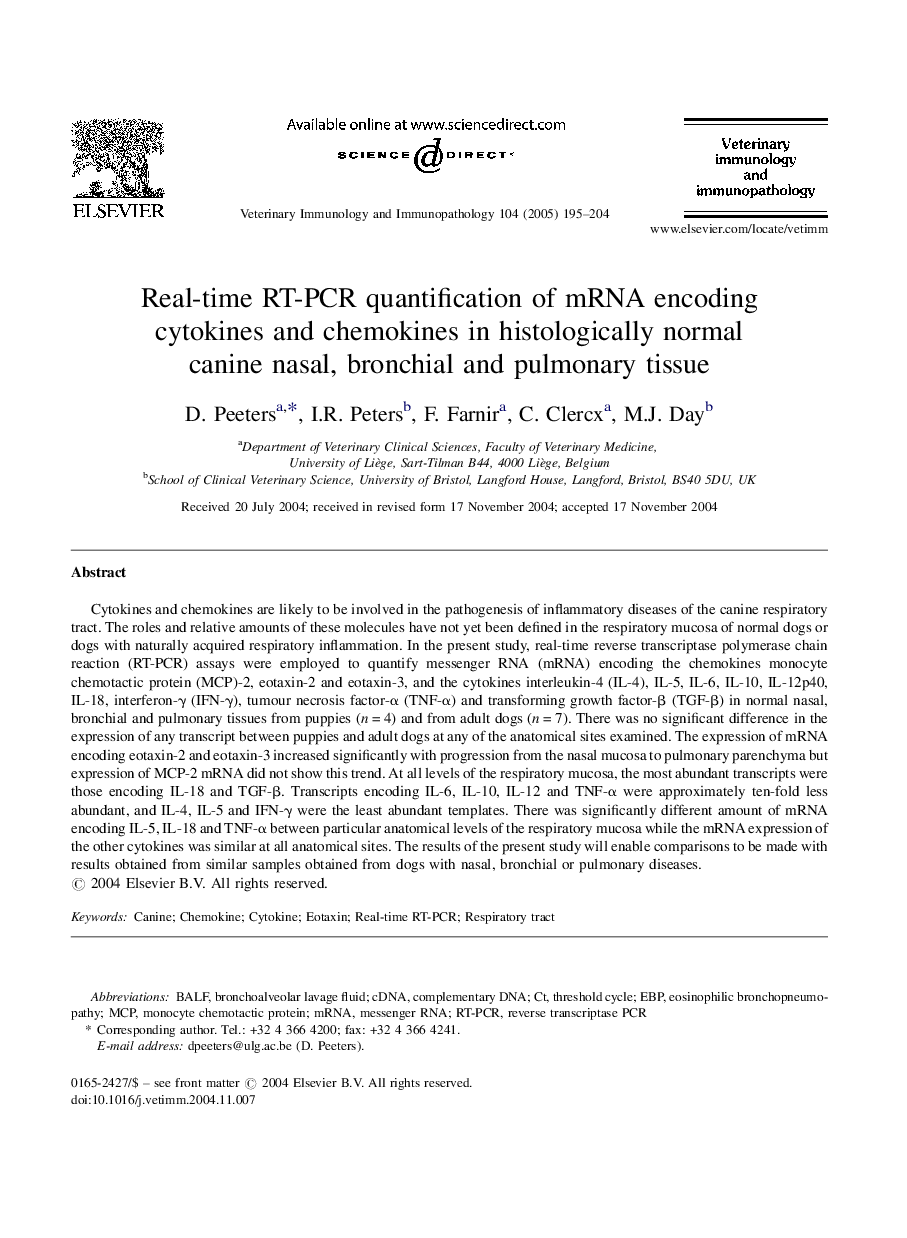| Article ID | Journal | Published Year | Pages | File Type |
|---|---|---|---|---|
| 8987796 | Veterinary Immunology and Immunopathology | 2005 | 10 Pages |
Abstract
Cytokines and chemokines are likely to be involved in the pathogenesis of inflammatory diseases of the canine respiratory tract. The roles and relative amounts of these molecules have not yet been defined in the respiratory mucosa of normal dogs or dogs with naturally acquired respiratory inflammation. In the present study, real-time reverse transcriptase polymerase chain reaction (RT-PCR) assays were employed to quantify messenger RNA (mRNA) encoding the chemokines monocyte chemotactic protein (MCP)-2, eotaxin-2 and eotaxin-3, and the cytokines interleukin-4 (IL-4), IL-5, IL-6, IL-10, IL-12p40, IL-18, interferon-γ (IFN-γ), tumour necrosis factor-α (TNF-α) and transforming growth factor-β (TGF-β) in normal nasal, bronchial and pulmonary tissues from puppies (n = 4) and from adult dogs (n = 7). There was no significant difference in the expression of any transcript between puppies and adult dogs at any of the anatomical sites examined. The expression of mRNA encoding eotaxin-2 and eotaxin-3 increased significantly with progression from the nasal mucosa to pulmonary parenchyma but expression of MCP-2 mRNA did not show this trend. At all levels of the respiratory mucosa, the most abundant transcripts were those encoding IL-18 and TGF-β. Transcripts encoding IL-6, IL-10, IL-12 and TNF-α were approximately ten-fold less abundant, and IL-4, IL-5 and IFN-γ were the least abundant templates. There was significantly different amount of mRNA encoding IL-5, IL-18 and TNF-α between particular anatomical levels of the respiratory mucosa while the mRNA expression of the other cytokines was similar at all anatomical sites. The results of the present study will enable comparisons to be made with results obtained from similar samples obtained from dogs with nasal, bronchial or pulmonary diseases.
Keywords
Related Topics
Life Sciences
Agricultural and Biological Sciences
Animal Science and Zoology
Authors
D. Peeters, I.R. Peters, F. Farnir, C. Clercx, M.J. Day,
